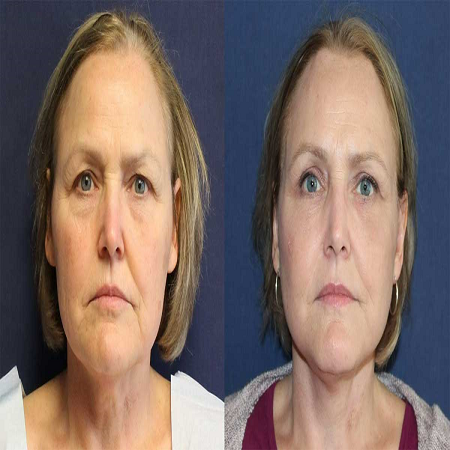Facial Reconstruction Surgery Abu Dhabi - Dubai
Facial reconstruction surgery, also known as maxillofacial surgery or craniofacial surgery, is a type of surgical procedure that aims to restore or improve the appearance and function of the face. It is typically performed to address congenital abnormalities, traumatic injuries, or acquired conditions that affect the facial structure.
Here are some key points about facial reconstruction surgery:
- 1. Purpose: Facial reconstruction surgery can help correct various issues, including facial deformities, facial asymmetry, jaw misalignment, cleft lip and palate, facial trauma, facial paralysis, and tumors affecting the face or skull.
- 2. Team of specialists: Facial reconstruction surgeries are often performed by a multidisciplinary team of specialists, including plastic surgeons, oral and maxillofacial surgeons, otolaryngologists (ear, nose, and throat specialists), ophthalmologists (eye specialists), and sometimes neurosurgeons.
- 3. Evaluation and planning: Before the surgery, a thorough evaluation is conducted, which may involve imaging tests such as CT scans, MRI scans, and X-rays. The team will assess the individual's specific condition, discuss treatment options, and develop a personalized surgical plan.
- 4. Surgical techniques: The specific techniques used in facial reconstruction surgery depend on the individual's needs. The procedures may involve bone grafting, bone reshaping, soft tissue reconstruction, skin grafting, scar revision, nerve repair, or muscle repositioning.
- 5. Risks and considerations: Like any surgical procedure, facial reconstruction surgery carries potential risks, including infection, bleeding, adverse reactions to anesthesia, scarring, nerve damage, and unsatisfactory results. It's crucial to discuss the potential risks and benefits with your surgeon before proceeding with the surgery.Recovery and follow-up: The recovery period varies depending on the complexity of the surgery and the individual's overall health. It may involve swelling, bruising, and discomfort, which can be managed with pain medication and follow-up care. Regular follow-up visits are essential to monitor healing and address any concerns.
- 6. Recovery and follow-up: The recovery period varies depending on the complexity of the surgery and the individual's overall health. It may involve swelling, bruising, and discomfort, which can be managed with pain medication and follow-up care. Regular follow-up visits are essential to monitor healing and address any concerns.
- 7. Emotional support: Undergoing facial reconstruction surgery can have a significant impact on an individual's emotional well-being. It's important to have a support system in place, which may include counseling, support groups, and talking to others who have gone through similar experiences.
It's worth noting that the field of facial reconstruction surgery is continually advancing, and new techniques and technologies may become available over time. If you or someone you know is considering facial reconstruction surgery, it's advisable to consult with a qualified plastic surgeon or maxillofacial surgeon who can provide a comprehensive evaluation and discuss the most appropriate treatment options.

